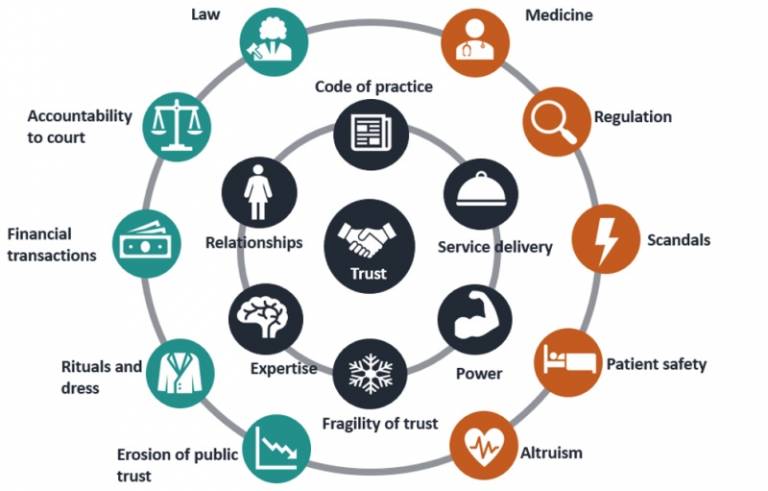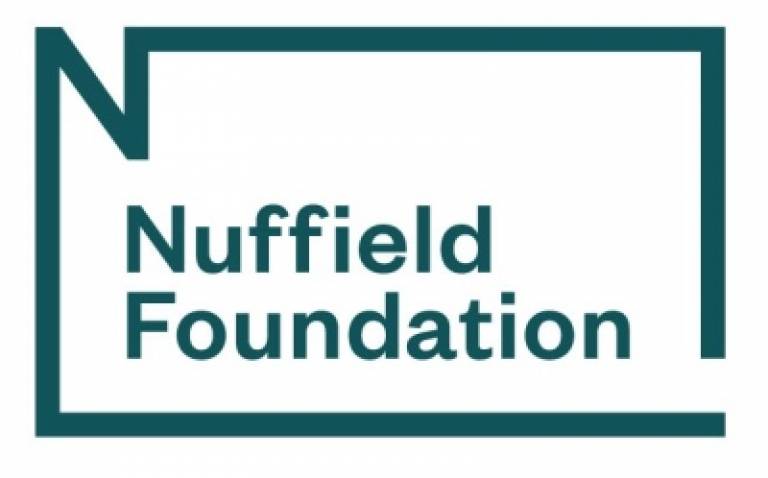Trust, professionalism and regulation: a critical comparison of Medicine and Law (funded by the Nuffield Foundation)
This research critically explored the accounts of UK legal and medical professionals to investigate the concept of trust, particularly in relation to professionalism and regulation.
Although public trust is accepted as a cornerstone of professional practice, exactly what this concept entails, and how it is created and maintained often relies on assumed understandings. Moreover, like the concept of professionalism, it is a complex and individual concept, which is highly context dependent. Regulation of the professions has been a key response to build public trust in the professions.
In this exploratory and wide-ranging qualitative project, we analysed interviews with those in, or related to, the UK legal and medical professions in order to better understand how public trust is built in the modern, regulated environment.
We chose to compare Medicine and Law as these are both traditional and socially prestigious professions, however, undertake different ways of working and enjoy different levels of reported societal trust.
The project created a snapshot of professionals’ attitudes and understandings towards trust, professionalism and regulation at a particular point in time. We thus aimed to explore how these concepts are currently understood, as well as to create a critical and evaluative space to consider how these might be conceived of differently.
The key similarities and differences between the professions are summarized in the model:

Figure 1: Similarities and differences between Law and Medicine in relation to trust
The inner circle shows key factors contributing to the maintenance of trust of both professions, as reported by our participants. These included an understanding of the role of the professional as sharing their expertise via the provision of a service. In doing so, professionals acknowledged the fragile nature of trust and power differentials within their professional relationship with clients/patients. This relationship was regulated by strict adherence to a professional code of practice.
The outer circle shows differences in key conceptualisations and systems of trust between the two professions.
Within Law, accountability to the court was a key determinant of professional behaviour, also demonstrated to clients through professional rituals and dress. Direct payment for services caused some suspicion of professionals’ motives and eroded trust.
Within Medicine, upholding patient safety via transparent and evidenced professionalism was paramount and closely enforced by the regulator. Public scandals threatened the trustworthy image of Medicine as altruistic and working solely in the public interest.
The authorial team at UCL are very grateful for the generous support of the Nuffield Trust’s Reactive Grant Scheme in funding this research.
The Nuffield Foundation is an independent charitable trust with a mission to advance social well-being. It funds research that informs social policy, primarily in Education, Welfare, and Justice. It also funds student programmes that provide opportunities for young people to develop skills in quantitative and scientific methods.
The Nuffield Foundation is the founder and co-founder of the Nuffield council on Bioethics and the Ada Lovelace Institute. The Foundation has funded this project, but the views expressed are those of the authors and not necessarily the Foundation.
Links
 Close
Close



